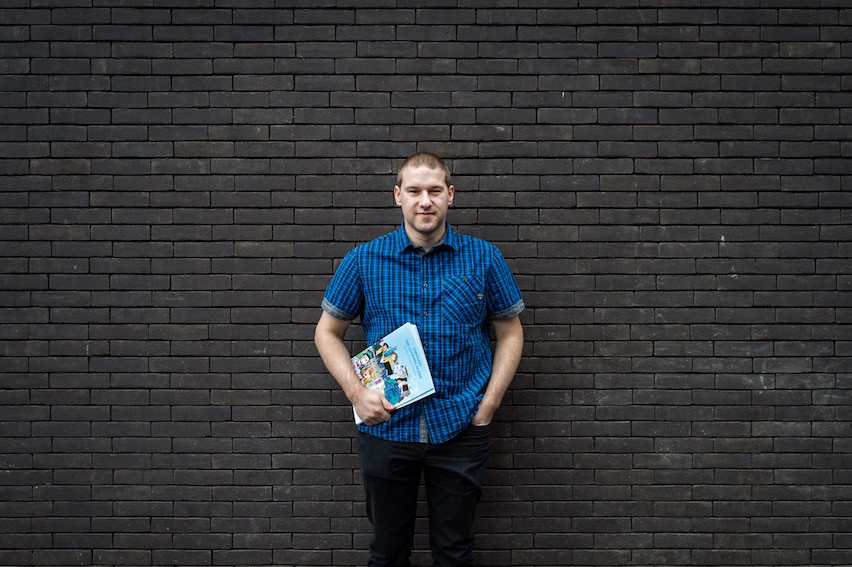If this doesn’t sound like an ordinary comic book, that’s because it was written by 22 doctoral candidates at the University of Luxembourg, Luxembourg Institute of Health and Luxembourg Institute of Science and Technology.
“The comics are based on true science,” says Jim Barthel, a doctoral candidate at the University of Luxembourg who worked on the mathematics optimisation story. “It’s not a science fiction comic. You will not see things that are not true, at all.” Moreover, the storylines are 100% based on actual research taking place in the grand duchy right now.
The comics were published as part of the university’s Doctoral Education in Science Communication initiative, which provides science communication training for doctoral candidates across Luxembourg, states Barthel. The idea is to teach PhD students how to effectively explain complex scientific research to the general public. Professor Bruno Teheux in the university’s maths department came up with the comic book idea, and then the call went out to all science PhD candidates in the country to participate.
Barthel joined the project in November 2018, partly because “I am completely convinced by the fact that Luxembourg is not [well] enough informed about what is going on [at] university level and also in science in general.”
Experienced researchers at the university, LIH and List contributed to fact-checking and the graphics were handled by a specialised agency in Paris, with the English and French versions of “Through the looking glass: Reflections of science in Luxembourg” released during the university’s open house event in February 2019. So far, more than 6,000 copies have also been distributed at events like the Science Festival in November, Escher Jugendtag (Esch youth day) in September and Contern comic book festival in July.
The positive reaction at the Contern festival in particular pushed the team to produce Luxembourgish and German versions, which were issued in November, says Barthel. He worked on those translations and “I had a lot of fun, actually… it’s one of the first times I translated science into Luxembourgish.”
The native of Rippweiler, near Redange, attended the Lycée classique de Diekirch and earned a bachelor’s in mathematics at the University of Luxembourg and a master’s in theoretical mathematics at Catholic University of Leuven, in Belgium. Barthel is currently pursuing a doctorate in computer science, focused on cryptography.
While primary pupils can understand “Through the looking glass”, a bigger goal is to get high school students interested in science majors at uni. Whether or not it works, “we’ll really only know in four years”. Nonetheless, Barthel says the experience has already helped him become a better communicator. To explain a scientific concept “in 12 frames, as in a comic, you need to be simple and precise at the same time. And that’s something you need to learn first.”
